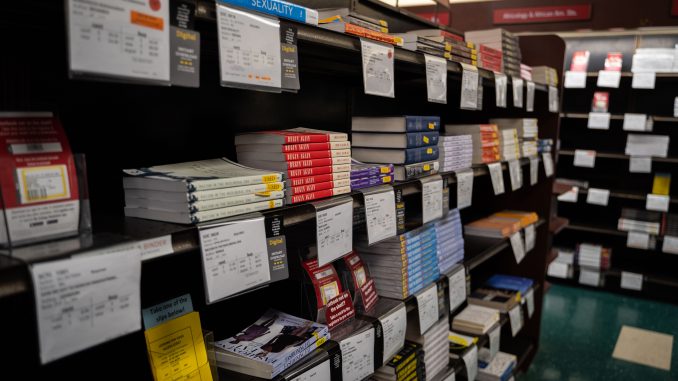
After attending a 2009 presentation from a student advocacy group about the negative impact of high textbook prices on college students, Steven Bell grew motivated to make educational resources more affordable at Temple University.
Bell, associate university librarian for research and instructional services, and Temple University Teaching, Learning & Technology Roundtable, a group that aims to improve educational resources, established the Textbook Affordability Project in 2011 to support Temple Libraries’ efforts to encourage faculty to publish their research in open journals and use alternatives for expensive textbooks, reducing the financial burden on students.
“Adding an initiative to encourage more use of open textbooks to save students money and provide more equity for all students with respect to learning, was a natural addition to our existing efforts,” wrote Bell in an email to The Temple News.
While the TAP has existed for more than a decade, many students still struggle to afford classroom materials each semester. The average price of books and supplies for Temple students has increased in the past two decades, jumping from $800 during the 2002-03 academic year to $1,510 during the 2020-21 academic year, the most recent year for which the university’s Common Data Sets provided data.
In a Jan. 3 Instagram post, Temple Libraries stated their New Year’s resolution is to support instructors through the switch to zero-cost materials in their courses.
They plan to raise awareness for the initiative through outreach measures like having conversations with faculty and participating in the annual Open Education Week, a global event seeking to promote the benefits of free and open sharing and education, said Kristina DeVoe, the English and Communications librarian.
JoAnne Epps, senior advisor to the president and law professor, established the Textbook Task Force in 2019 to bring a university-wide approach to textbook affordability initiatives, she said.
The Task Force is an expansion of TAP and consists of more partners than just the library, like Undergraduate Academic Affairs, the Center for the Advancement of Teaching, Information Technology Services, the Bookstore, the Registrar, Temple Student Government and several faculty members in an effort to extend outreach on the initiative.
Epps feels there are more alternatives to course materials in the 21st century that can benefit students and the Task Force needed to reflect that, she said.
“I wanted to create a Task Force that would provide information to faculty to make fairer and better student focused choices,” Epps said.
Professors can apply for grants through the TAP if they choose to use open textbooks, adapt content available through the library or create open educational resource assignments. The project has given more than 90 faculty members awards and grants since 2011, which assists them in adopting more affordable classroom materials.
Natalie Flynn, a professor in the Earth and Environmental Science Department, received a grant from the North Broad Press, a joint publishing project between Temple University Press and Temple University Libraries, to adapt materials in the course, Introduction to Physical Geology.
Flynn also received a grant from TAP that allowed her to have free or low-cost learning materials and remove two books from a course in her department with expensive materials, she said.
Flynn applied for the grant after noticing many of her students struggled to afford and access required textbooks for her classes each year.
“I no longer have this uneven playing field where half my students have access to a book and the other half doesn’t,” she added.
Of the 633 students that Temple Student Government surveyed in October 2020, 41 percent reported they worked extra hours at their jobs to afford course materials, 24 percent chose classes based on the cost of the learning materials and 28 percent prioritized the purchase of access code content more than other learning materials.
In their survey comments, students mentioned skipping meals, not paying bills and even dropping classes because they could not afford the course materials.
Sinh Taylor, a senior English and gender, sexuality and women’s studies major, has professors who upload free PDF versions of required readings, but still has to buy or source multiple books each semester. This is a difficult and costly expense, Taylor said.
Many times, Taylor planned to rely on the library to borrow a required book for an assignment and save money, but by the time they arrived to pick it up, someone else had already checked it out.
“When I have to either rent the book, or borrow it from somebody, or borrow it from somewhere, I don’t have that, like, infinite resource,” Taylor said. “I feel like it’s unfair.”
Taylor feels textbooks and required classroom materials should be included with students’ tuition.
“If I need to have a certain book, I shouldn’t have to go out and hunt it down,” Taylor said. “That should just be part of the money I’m already paying to go here.”
DeVoe hopes for increased interest in use of these open and affordable resources and faculty who make the switch serve as ambassadors on campus to help spread the word of the initiative, she said.



Be the first to comment